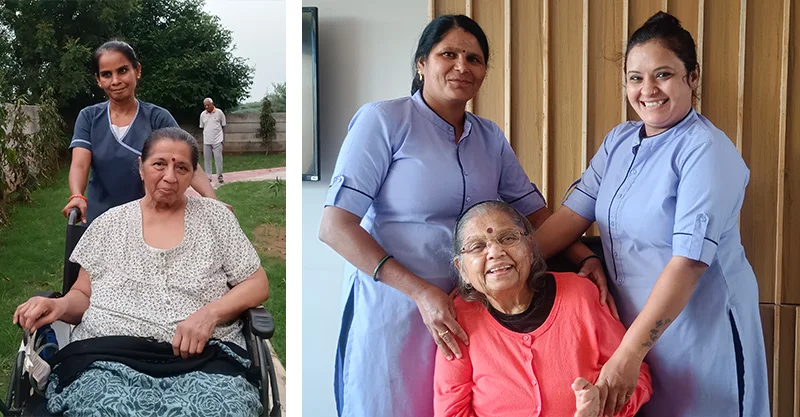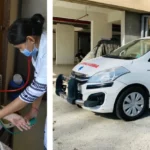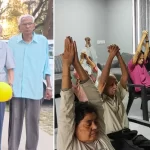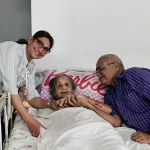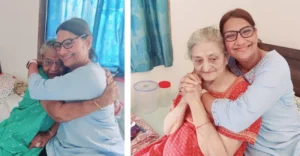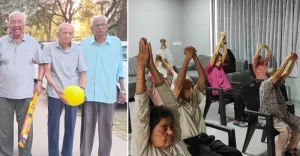In the intricate journey of elderly hospital recovery care, the pivotal role of senior caregivers cannot be overstated. As aging loved ones traverse the challenges of hospitalization and subsequent recuperation, senior caregivers stand as pillars of unwavering support, offering both physical assistance and emotional solace. This article aims to illuminate the indispensable contributions of senior caregivers during the hospital recovery process, underscoring their crucial role in facilitating successful outcomes and promoting the well-being of elderly patients.
Understanding the Hospital Recovery Process
Elderly hospital recovery care entails a multifaceted process, encompassing various stages with distinct challenges and requirements. From the initial phase of acute medical intervention to rehabilitation efforts aimed at restoring physical function, seniors undergo a journey fraught with complexities. Furthermore, discharge planning emerges as a critical aspect, as seniors transition from the structured environment of the hospital to the familiarity of home or a post-acute care facility. Understanding these stages is essential for senior caregivers, enabling them to provide tailored support that addresses the specific needs and circumstances of their loved ones.
The Vital Role of Senior Caregivers
Senior caregivers assume a central role in the hospital recovery journey, serving as advocates, companions, and caregivers for their aging loved ones. Beyond attending to physical needs, senior caregivers offer unwavering emotional support, providing reassurance and comfort during moments of vulnerability. Their presence fosters a sense of security and stability, empowering elderly patients to navigate the challenges of recovery with confidence and resilience.
Supporting Physical Recovery
Senior caregivers play a crucial role in facilitating the physical recovery of elderly patients, offering assistance with activities of daily living, mobility support, and medication management. By creating a nurturing environment that prioritizes comfort and safety, caregivers contribute to the optimization of their loved one’s physical well-being and recovery progress.
Addressing Emotional and Psychological Needs
Hospital recovery can evoke a range of emotions for elderly patients, including anxiety, fear, and frustration. Senior caregivers play a vital role in addressing these emotional and psychological needs, offering compassionate support, active listening, and encouragement. Their empathetic presence serves as a source of comfort, fostering a sense of emotional well-being and resilience in elderly patients.
Advocating for Comprehensive Care
Senior caregivers advocate for comprehensive care for their loved ones, ensuring access to medical specialists, rehabilitation services, and social support programs. By actively engaging with healthcare professionals and participating in care planning discussions, caregivers ensure that their loved ones receive the holistic care necessary for successful recovery and overall well-being.
Navigating Transitions and Discharge Planning
As elderly patients transition from hospital to home or post-acute care settings, senior caregivers play a pivotal role in facilitating a smooth and seamless transition. From coordinating follow-up appointments to arranging for home health services, caregivers ensure continuity of care and support for their loved ones during this critical period of adjustment.
You may like to read this: After Hospital Care for Elderly [Meaning + Challenges + Benefits]
Self-Care for Senior Caregivers
Acknowledging the challenges and demands of caregiving, it’s essential for senior caregivers to prioritize their own self-care and well-being. By practicing self-compassion, setting boundaries, and seeking support from others, caregivers can replenish their energy and resilience, ensuring they are equipped to continue providing the best possible care for their loved ones.
Celebrating Success and Resilience
Amidst the challenges of hospital recovery, senior caregivers demonstrate remarkable resilience and dedication in supporting their loved ones’ journey to recovery. By celebrating their successes and sharing stories of resilience, we honor the invaluable contributions of senior caregivers and draw inspiration from their unwavering commitment to care and compassion.
PapayaCare – The Best Senior Caregivers
PapayaCare stands as a beacon of excellence in senior caregiving, offering compassionate and personalized support to elderly individuals during their hospital recovery journey. With a dedicated team of caregivers committed to providing exceptional care and advocacy, PapayaCare ensures that seniors receive the support they need to thrive and recover with dignity and compassion.
Conclusion
In conclusion, senior caregivers play an indispensable role in providing support during elderly hospital recovery care. Their dedication, compassion, and advocacy contribute significantly to promoting successful outcomes and enhancing the well-being of elderly patients. It’s essential to recognize and appreciate the invaluable contributions of senior caregivers, ensuring they receive the support and recognition they deserve in their vital role in the healthcare system.

